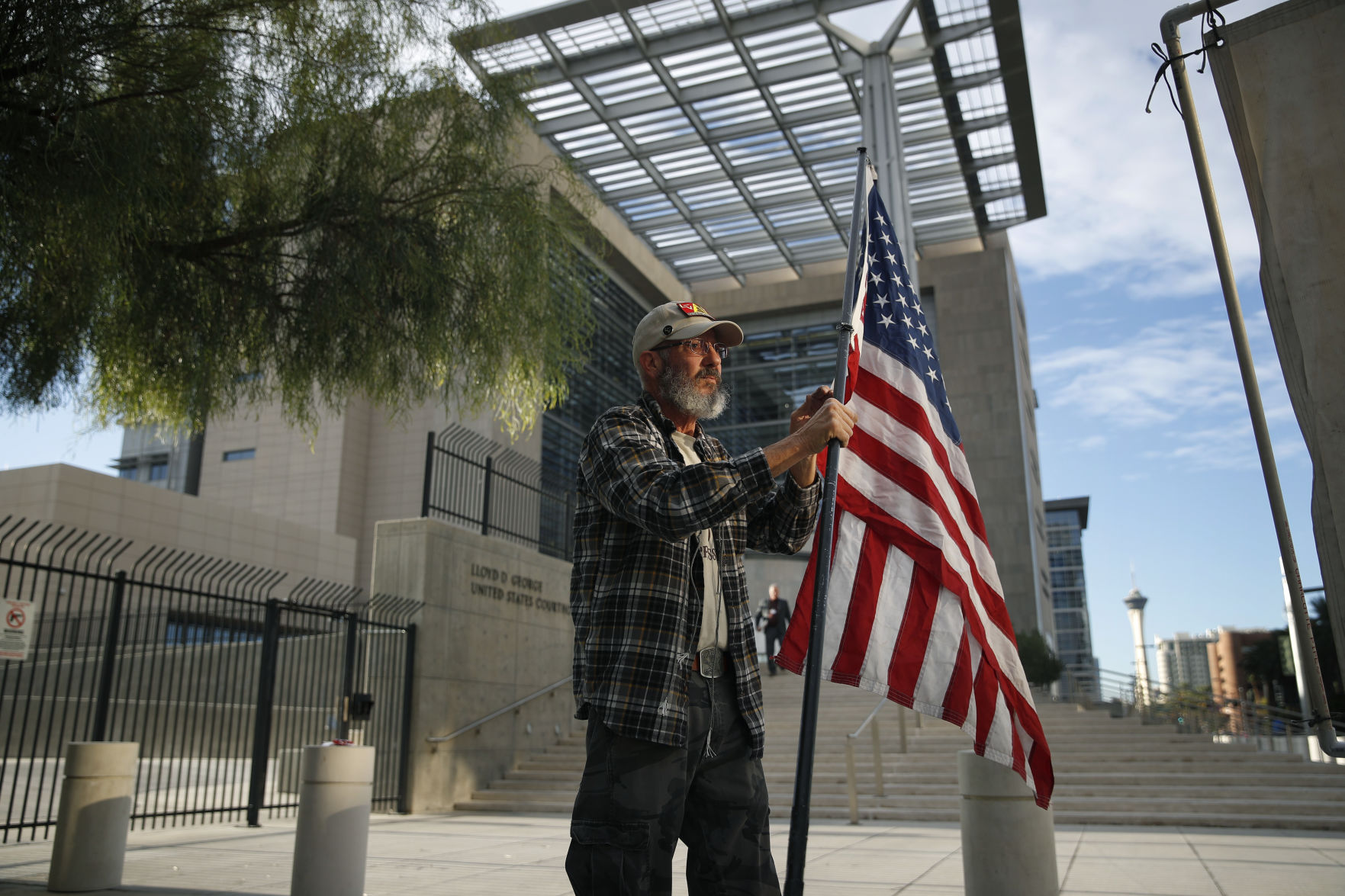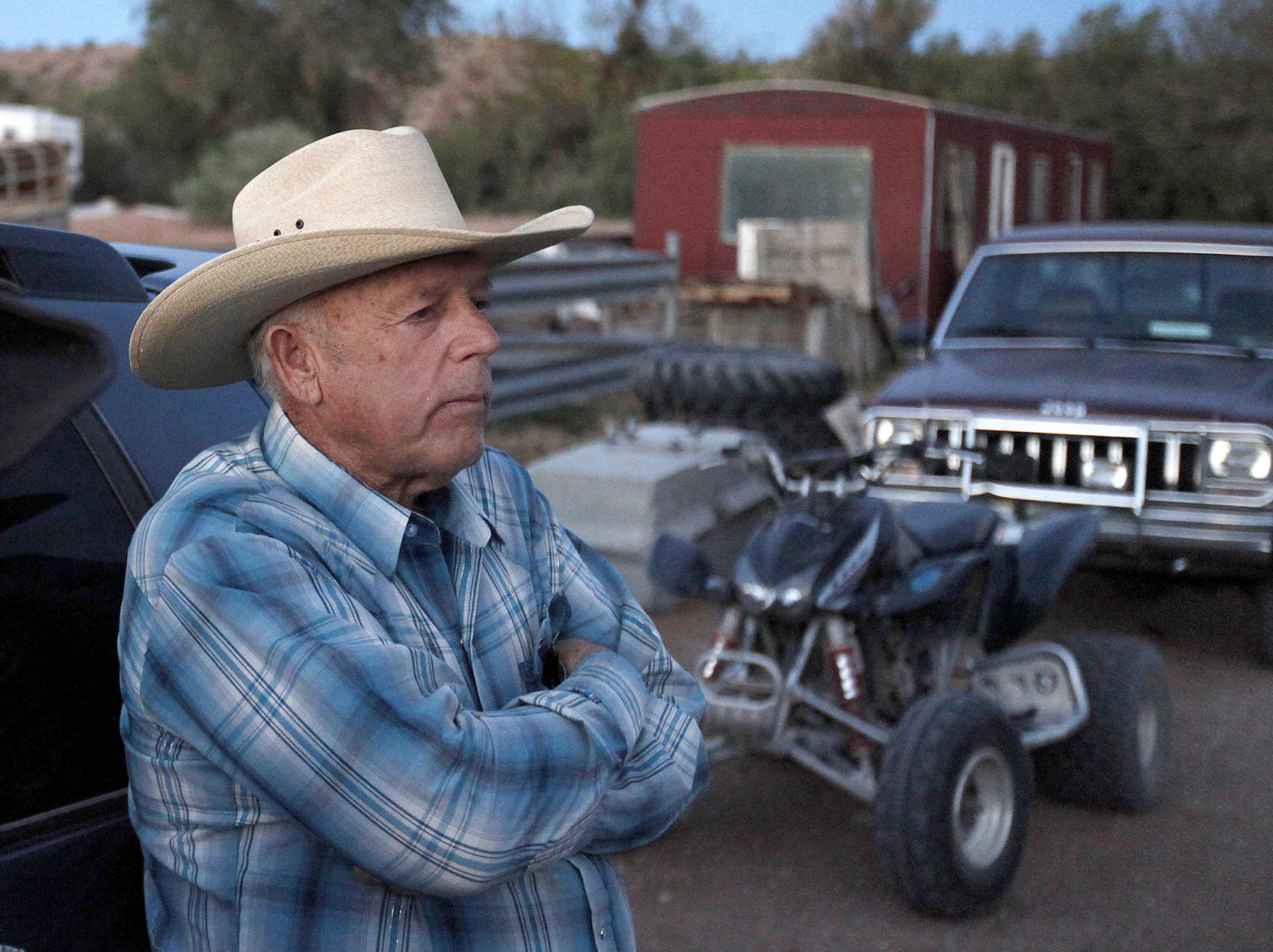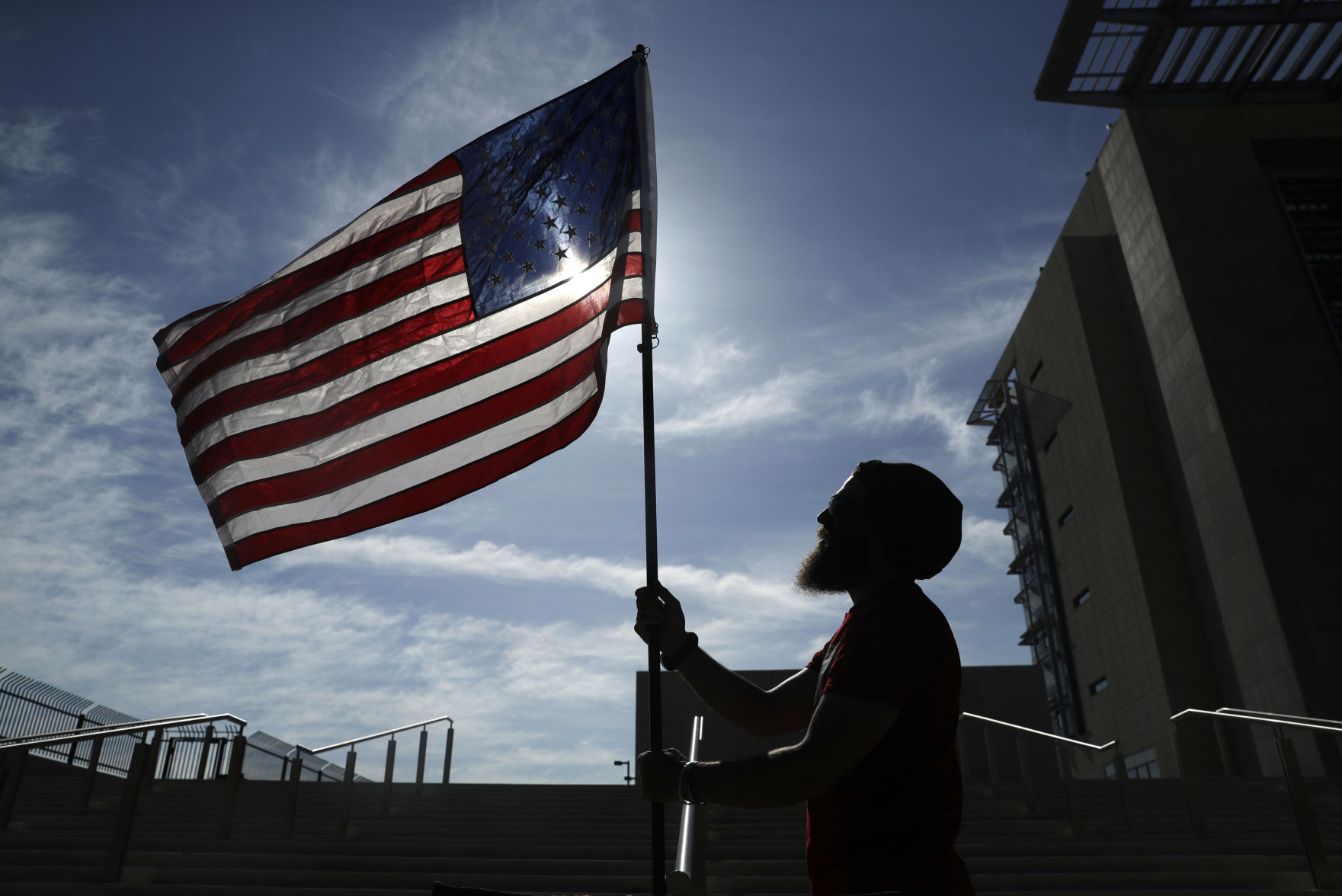LAS VEGAS (AP) — Trial could take four months for Nevada rancher and states’ rights figure Cliven Bundy, his two sons and one other co-defendant accused of leading a self-styled militia to prevent federal agents from removing Bundy cattle from
LAS VEGAS (AP) — Trial could take four months for Nevada rancher and states’ rights figure Cliven Bundy, his two sons and one other co-defendant accused of leading a self-styled militia to prevent federal agents from removing Bundy cattle from public rangeland, a federal judge told prospective jurors on Monday.
Jury selection alone could take several days, Chief U.S. District Judge Gloria Navarro told 49 people during a first day of questioning about their backgrounds, opinions and ability to impartially decide whether Bundy, sons Ryan and Ammon Bundy, and co-defendant Ryan Payne of Montana conspired to lead an armed uprising against the government. Similar-sized groups of prospective jurors are due for questioning through Thursday.
“Although they are accused, they start trial with a clean slate,” the judge said of the defendants.
Court proceedings began with security exceptionally tight inside the federal courthouse in Las Vegas, and in the courtroom where observers are banned from having electronic devices including cellphones. A small sidewalk protest outside echoed more robust demonstrations organized by Bundy backers during two previous trials.
Those proceedings ended in April and August with prosecutors failing to gain full convictions of six defendants who had assault-style weapons with them during an April 2014 standoff involving Bundy backers, protesters and federal agents near the Nevada town of Bunkerville.
The confrontation stemmed from Cliven Bundy’s refusal to pay grazing fees to a federal government that he maintains has no authority over public land, including what is now Gold Butte National Monument, where he says Bundy family cows have grazed since the early 1900s.
The assertions by the 71-year-old patriarch of a Mormon family with 14 children and more than 50 grandchildren has roots in a nearly half-century fight over public lands involving ranchers in Nevada and the West, where the federal government controls vast expanses of land.
The four defendants were conspicuous in Monday’s courtroom, sitting wearing red jail scrubs next to their lawyers — including one aiding Ryan Bundy, who is representing himself. Each defendant has been in federal custody since his arrest in Oregon in early 2016, and each has protested his pretrial confinement.
Each told Navarro when she asked on Monday that his decision not to wear civilian clothes was voluntary.
“My attire is my choice today,” Ryan Bundy said.
“Yeah. I think they look pretty good,” Ammon Bundy quipped.
Several prospective jurors, who were referred to in court by juror numbers instead of names, said serving through the holidays to the end of February would pose a hardship for them, their families or their employers. One said she is a full-time student at the University of Nevada, Las Vegas, who also works 30 hours a week to make ends meet.
The jury that is eventually seated will hear a case about armed confrontation in a city still reeling following the Oct. 1 Las Vegas Strip shooting by a man who authorities say fired assault-style weapons from windows of a high-rise casino hotel into an open-air music festival crowd, killing 58 people and injuring nearly 550 before also killing himself.
The start of trial was postponed nearly three weeks following the massacre. Ammon Bundy’s attorneys, Daniel Hill and Morgan Philpot, asked the judge on Monday for another delay.
Philpot cited media reports that he said make “a direct correlation between this trial and that event.”
Authorities including the FBI and Las Vegas police have not disclosed if they have identified a motive for Strip shooter Stephen Paddock’s rampage. None has linked Paddock with Bundy.
Bundy, his sons and Payne each faces 15 felony charges including conspiracy, assault and threats against federal officers, firearms counts, obstruction and extortion. Convictions on all charges could carry the possibility of more than 170 years in prison.




